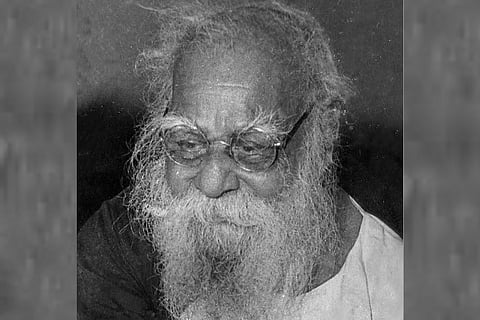

Standing up for freedom of speech and expression under the Constitution of India, the Madras High Court this week dismissed a petition that sought to remove inscriptions from Periyar statues in Tamil Nadu, that said, “There is no god.” The petition filed by a person called M Deivanayagam claimed that the atheist inscriptions under Periyar statues in the state were offensive to believers of the “Universal God”; he wanted the state government to remove these inscriptions, and accused the Dravidar Kazhagam – the successor of Justice Party founded by Periyar – of making up views that were not really Periyar’s.
The inscriptions under Periyar’s statues read: “There is no god, no god, there really is no god // He who created god is a fool // He who preaches god is a scoundrel // He who prays to god is uncivilised.”
While the petitioner claimed that these are not the views of Periyar, who was only a humanist and not an atheist, the Dravidar Kazhagam rubbished this claim. “The inscriptions were made only at the instance of Thanthai Periyar,” DK said in court, “Thanthai Periyar had foreseen the situation, that if there is no such inscription in the statues, then these statues will also be made as a God and people will start worship, after some years.”
The division bench consisting of Justices S Manikumar and Subramonium Prasad dismissed the PIL on Wednesday, September 4, and said that the Dravidar Kazhagam has a right to their views on the non-existence of god – just like the petitioner has a right to believe in god, under Article 19 of the Constitution (freedom of speech and expression).
Mentioning numerous examples from previous judgments by the Supreme Court and the High Court itself, the judges stated, “If the petitioner has a constitutional right under Article 19 of the Constitution of India, to express his views on religion and existence of God, …we are of the view that...followers of Thanthai Periyar, in exercise of the rights under Article 19 of the Constitution of India, has a right to disagree with the same.”
The court further held that there is no doubt that Periyar himself was an atheist, based on his writings and speeches. “Thanthai Periyar believed in what he said, and there is nothing wrong in having his views inscribed in the statues,” the court order read, adding that DK has the right, under the Constitution of India, to express views on religion and existence of God.